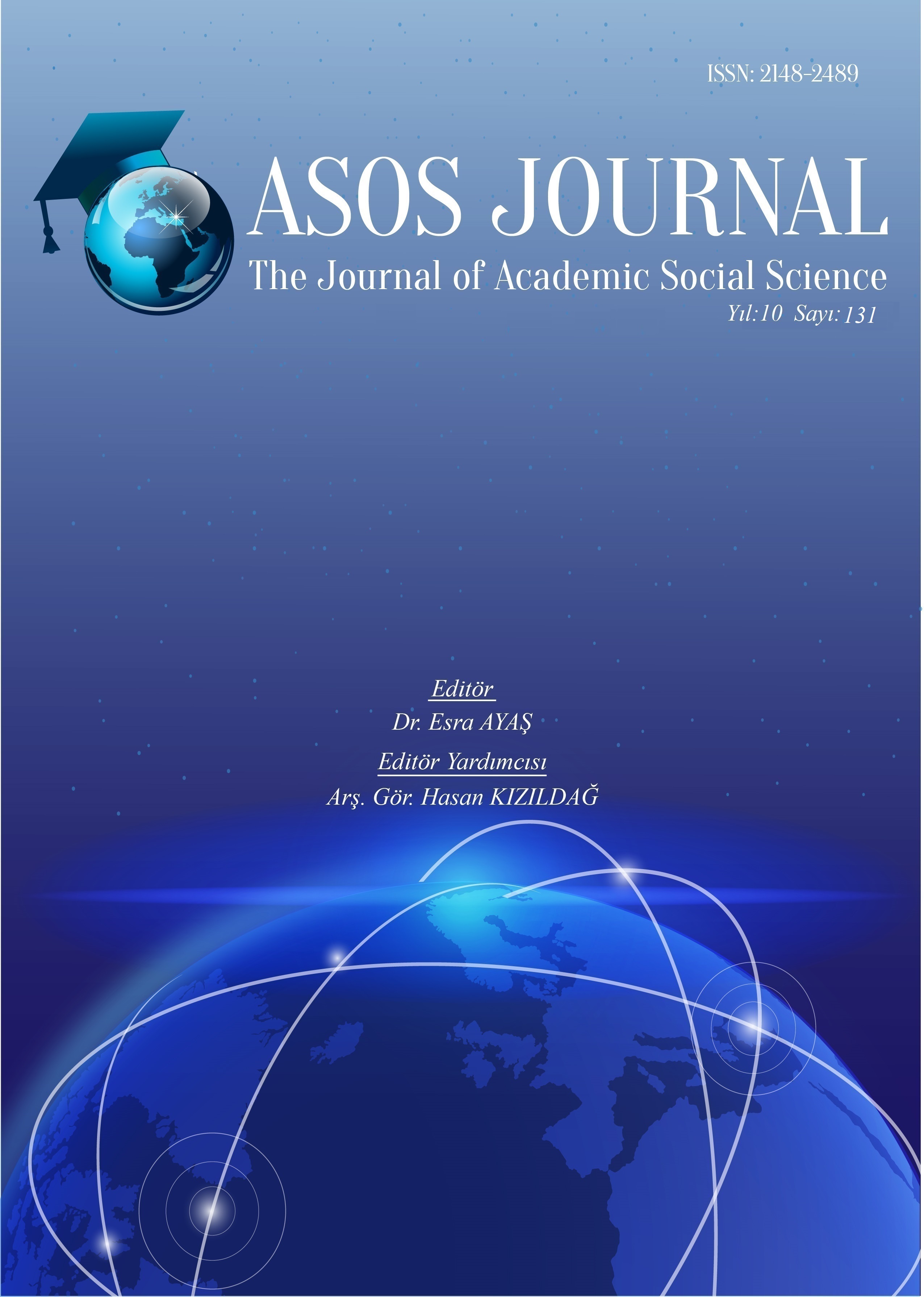FRS HESAP PLANI TASLAĞI FİNANSAL YATIRIMLAR İLE TEKDÜZEN HESAP PLANI MENKUL KIYMETLER HESAP GRUPLARI FARKLARININ ANALİZİ
Author :
Abstract
Türkiye’de “Bilanço Esası”na göre defter tutan işletmeler, muhasebe kayıtlarını ve finansal tablo düzenlemelerini 1994 yılından başlayarak halen “Tekdüzen Hesap Planı”nı kullanarak yapmaktadırlar. Ancak bu hesap planı, Dünya’da ve Türkiye’de meydana gelen gelişme ve değişimler sonucu ortaya çıkan ihtiyaçları karşılamada yetersiz kalmaktadır. Bu yetersizliği gidermek için muhasebe ve finansal raporlama konusunda Türkiye’de yetkili olan “Kamu Gözetimi Muhasebe ve Denetim Standartları Kurumu (KGK)” tarafından “Finansal Raporlama Standartlarına Uygun Hesap Planı (FRS Hesap Planı) Taslağı” hazırlanarak, 2018 yılı sonunda ilgililerin görüşüne sunulmuştur. Ülkemizde 2011 yılında çıkarılan 6102 sayılı Türk Ticaret Kanunu gereğince, “Uluslararası Muhasebe Standartları (UMS)” ve “Uluslararası Finansal Raporlama Standartları (UFRS)” ve bu standartlarda yapılan güncellemeler Türkçeye çevrilerek, “Türkiye Muhasebe Standartları (TMS)” ve “Türkiye Finansal Raporlama Standartları (TFRS)” olarak kabul edilmekte ve belirli işletmeler açısından uygulanmaktadır. Bu standartlara uygun muhasebe kayıtlarının yapılmasında “Tekdüzen Hesap Planı”nın yetersizliğini gidermek için KGK tarafından oluşturulan “Taslak Plan”ın 2021 yılında yürürlüğe girmesi beklenmesine rağmen, plan henüz yürürlüğe girmemiştir. Bu planın yürürlüğe girmesiyle, Bilanço esasına göre defter tutan işletmeler açısından gerek “TMS-TFRS” gerek “Büyük ve Orta Boy İşletmeler için Finansal Raporlama Standardı (BOBİ FRS)” ve gerekse “Küçük ve Mikro Ölçekli İşletmeler için Finansal Raporlama Standardı (KÜMİ FRS) Taslağı”na uygun muhasebe kayıtları ve finansal raporlama daha etkin biçimde yapılabilecektir. Bu çalışmada, “Finansal Yatırımlar-Menkul Kıymetler” hesap grupları “Tekdüzen Hesap Planı” ve “FRS Hesap Planı Taslağı” açısından karşılaştırılarak aralarındaki farklar ortaya konulmaya çalışılmıştır. Ortaya çıkan farklar, aynı zamanda 1994 yılından günümüze kadar geçen süreçte Dünya’da ve Türkiye’de meydana gelen değişim ve gelişmelerin muhasebe ve finansal raporlama açısından ortaya çıkardığı yenilikleri oluşturmaktadır. Bu farkların ortaya konulmasının amacı, uygulamada karşılaşılabilecek tereddütleri gidermek ve yeni hesap planı uygulamaları konusunda uygulayıcılara yardımcı olmaktır. Bu amaçla, “Finansal Yatırımlar-Menkul Kıymetler” hesap grupları açısından ortaya çıkan farklar ve uygulamaya giren yenilikler incelenmeye çalışılmıştır.
Keywords
Abstract
Businesses that keep books in accordance with the “Balance Sheet" in Turkey are still making their accounting records and financial statement arrangements using the “Uniform Chart of Accounts”, starting from 1994. However, this chart of accounts is insufficient to meet the needs arising as a result of developments and changes in the world and in Turkey. In order to eliminate this deficiency, a "Draft Chart of Accounts in Accordance with Financial Reporting Standards (FRS Chart of Accounts) " was prepared by the "Public Oversight Accounting and Auditing Standards Authority (POA)", which is authorized in accounting and financial reporting in Turkey, and submitted to the opinion of the interested parties at the end of 2018. In accordance with the Turkish Commercial Code No. 6102 enacted in 2011 in our country, “International Accounting Standards (IAS)” and “International Financial Reporting Standards (IFRS)” and the updates made in these standards were translated into Turkish, “Turkish Accounting Standards (TAS)” and “Turkish Financial Reporting Standards (TFRS)”and applied for certain businesses. Although the "Draft Plan" created by the POA to eliminate the inadequacy of the "Uniform Chart of Accounts" in making accounting records in accordance with these standards is expected to enter into force in 2021, the plan has not yet entered into force. With the entry into force of this plan, accounting in accordance with both TAS-TFRS, Financial Reporting Standard for Large and Medium-Sized Enterprises (LMSE FRS) and Financial Reporting Standard for Small and Micro-Scale Enterprises (SMSE FRS) Draft for businesses keeping books on the basis of balance sheet. records and financial reporting will be done more effectively. In this study, the "Financial Investments-Marketable Securities" account groups were compared in terms of "Uniform Chart of Accounts" and "FRS Chart of Accounts Draft" and the differences between them were tried to be revealed. The differences that have emerged also constitute the innovations that have emerged in terms of accounting and financial reporting by the changes and developments that have taken place in the world and in Turkey in the period from 1994 to the present. The purpose of revealing these differences is to eliminate the hesitations that may be encountered in practice and to assist the practitioners in the implementation of new chart of accounts. For this purpose, the differences that emerged in terms of "Financial Investments-Marketable Securities" account groups and the innovations that came into practice were tried to be examined.
Keywords
- Abdioğlu, H., İşgüden Kılıç, B., Güneş, S. (2014). Temel Finansal Araçların KOBİ TFRS, Tam Set TFRS ve Türk Vergi Mevzuatı ile Karşılaştırmalı İncelenmesi ve Muhasebeleştirme Örnekleri. Yönetim ve Ekonomi Dergisi, Yıl:2014, Cilt:21, Sayı:2.
- Dızman, Ş. (2018). Genel Muhasebe. Ekin Yayınevi.
- Doğan, A. (2018). Büyük ve Orta Boy İşletmeler için Finansal Raporlama Standardı ile VUK/MSUGT Karşılaştırması. Muhasebe ve Finansman Dergisi, Ekim/2018.
- Erol, M., Aslan, M. (2017). Uluslararası Muhasebe ve Denetim Standartlarının Gelişmesi. Muhasebe ve Finans Tarihi Araştırmaları Dergisi, Ocak 2017, Sayı:12, s. 55-86.
- Güney, S. (2018). Küreselleşmenin Finansal Raporlama Standartlarına Etkisi. The Journal of Academic Social Science. Yıl:6, Sayı: 78, Eylül 2018, s. 61-72
- https://www.kgk.gov.tr/DynamicContentDetail/10378/TFRS-2022-Seti (Erişim Tarihi: 17.06. 2022)
- https://www.kgk.gov.tr/Portalv2Uploads/files/Duyurular/v2/TFRS/EK2_Finansal%20Raporlam a%20Standartlar%C4%B1na%20Uygun%20Hesap%20Plan%C4%B1%20Tasla%C4% 9F%C4%B1.pdf (Erişim Tarihi: 18.06.2022).
- Resmî Gazete (1992). 1 Sıra No'lu Muhasebe Sistemi Uygulama Genel Tebliği. Resmî Gazete No: 21447 (M), Resmî Gazete Tarihi: 26/12/1992.
- Resmî Gazete (2011). 6102 Sayılı Türk Ticaret Kanunu. Resmî Gazete Sayı: 27846, Resmî Gazete Tarihi: 14/02/2011. Kabul Tarihi: 13/01/2011.





